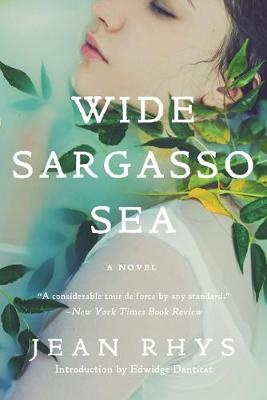
Wide Sargasso Sea, a masterpiece of modern fiction, was Jean Rhys’s return to the literary center stage. She had a startling early career and was known for her extraordinary prose and haunting women characters. With Wide Sargasso Sea, her last and best-selling novel, she ingeniously brings into light one of fiction’s most fascinating characters: the madwoman in the attic from Charlotte Brontë’s Jane Eyre. This mesmerizing work introduces us to Antoinette Cosway, a sensual and protected young woman who is sold into marriage to the prideful Mr. Rochester. Rhys portrays Cosway amidst a society so driven by hatred, so skewed in its sexual relations, that it can literally drive a woman out of her mind.
A new introduction by the award-winning Edwidge Danticat, author most recently of Claire of the Sea Light, expresses the enduring importance of this work. Drawing on her own Caribbean background, she illuminates the setting’s impact on Rhys and her astonishing work.
- ISBN10 0393352560
- ISBN13 9780393352566
- Publish Date 12 January 2016 (first published October 1966)
- Publish Status Active
- Publish Country US
- Imprint WW Norton & Co
- Format Paperback
- Pages 176
- Language English
Reviews


brokentune
Man, was I wrong!
I’m not sure if knowing the story of Jane E. actually helps reading this book. It might help with the ending - if you don't like cliffhangers, that is.
WSS does work perfectly well as a stand-alone book. I thought the connection with Jane Eyre enabled Rhys to focus on the characters and develop the atmosphere and emotional development of Antoinette and Mr. Rochester rather than having to spend much time on developing a captivating plot. And the creation of an atmosphere is what Rhys manages - in a way not dissimilar to Daphne DuMaurier - perfectly. It drew me right into the story.
There also is one observation about Wide Sargasso Sea I just can't get out of my mind: The use of alcohol - in what seems to be quite large amounts - as a sedative for the troubled minds of both Antoinette and Rochester seems to be ubiquitous, and I cannot help but wonder if this was a description of Rhys' own coping mechanisms that led to her alcoholism.
